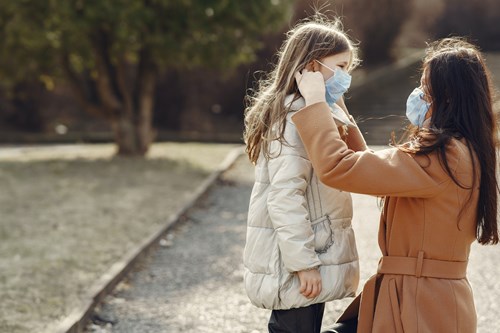The number of children ages 3-17 years diagnosed with anxiety or depression increased nearly 30 percent from 2016 to 2020, according to the study.

There have been significant increases in children diagnosed with anxiety and depression, decreases in physical activity, and a decline in the mental and emotional wellbeing of caregivers, according to a new U.S. Department of Health and Human Services (HHS) study published in JAMA pediatrics.
The study, conducted by the Health Resources and Services Administration (HRSA) to examine mental health trends in children ages 3-17 between 2016 and 2020, found a significant increase in diagnosed mental health conditions, with a 29 percent increase in anxiety and a 27 percent increase in depression. While increases in anxiety and depression among children were evident prior to the COVID-19 pandemic, researchers noted a prevalence increase in 2020 as well as a 21 percent year-over-year increase in diagnoses of behavior or conduct problems from 2019 to 2020.
Researchers also found that:
- In the past five years, only 80 percent of children with mental health needs received care.
- Children’s health care decreased after the onset of the pandemic in 2020, with a nine percent year-over-year decrease in preventive medical visits, a seven percent decrease in preventive dental visits, and a 32 percent increase in unmet health care needs.
- Children’s physical activity decreased by 18 percent between 2016 and 2020.
- Between 2019 and 2020, there was a 34 percent increase in the proportion of children whose parents quit, declined, or changed jobs due to childcare problems.
- There was a significant increase between 2019 and 2020 in the number of parents who reported difficulty coping with parenting demands.
"The pandemic has been particularly difficult on our children, who have been as scared and confused as the rest of us were," said HHS Secretary Xavier Becerra in a statement. "Today’s study confirms what all too many of us know and feel in our daily lives: COVID-19 was an exceptional burden on the mental well-being of our nation’s families, including kids. We will do everything we can to help provide our youngest ones with the resources they need to overcome the effects this pandemic and thrive in the years to come."
In the statement, HHS said HRSA is investing several strategies to support children’s mental health, including expanding access to pediatric mental health care, training child psychiatrists, developing guidelines around youth preventive care and mental health care, providing health care at HRSA-funded community health centers, providing in-home support to parents and children, and investing in training and growing the mental health workforce.

